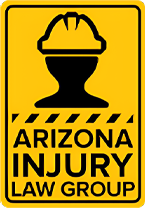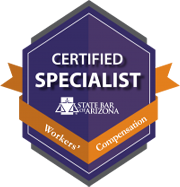What Should I Know About Arizona’s Whistleblower Program?

Life is not fair, and life is not easy. Occasionally, someone in business, whether it be the boss, the floor manager, or a disgruntled employee on the night shift, thinks they should have more out of life than what they are getting.
The disgruntled employee decides to “have an accident” so he can get workers’ compensation benefits for a while and not work. He lifts a very heavy object and manages to put his neck and back “out of commission.” The employee immediately files a workers’ compensation claim.
Both his personal doctor and the employer’s insurance doctor, who looked at the x-rays and did thorough exams, note there is a curvature of the spine. They both note his “level of pain is high.” He is approved for benefits.
Two months later, another employee out for the night with his girlfriend, sees the “injured” employee dancing at a night club with no apparent pain. In fact, the supposedly injured man gets on top of the bar to dance and is told to get down. He jumps off the bar and lands without any problem. Sound suspicious?

The employee who saw all this happened to be the one that picked up the injured employee’s workload while recovering. He files a whistleblower complaint. This begins an investigation whereby the “injured” employee was caught in the act at another night club and was charged with fraud against the state and workers’ compensation.
THE ARIZONA WHISTLEBLOWER PROGRAM
The Arizona Whistleblower program covers several areas, such as those who worked for the Arizona government, those who commit fraud against the Arizona government (like our “injured” employee), general employment such as loss-of-job retaliation, issues against children and newborns, retaliation prohibition, and agriculture employment relations.
The Employment Protection Act is covered by Arizona Revised Statute (A.R.S.) §23-1501. Most Arizona employees will fall under this act which protects workers from retaliatory job discharges when a job-related problem occurs. An example of this could be the following story.
John Doe noticed that there was a very small green fluid leak coming from two barrels that had been moved outdoors to the far end of the employer’s property by a creek. He did not know what the green fluid was, but it could not be good if it ran into the creek.
John decided to tell his floor manager who said he would investigate the barrels. Two weeks later, John checked the barrels, but they were now leaking more than ever. The green fluid was running into the water. John worried about the animals that he had seen drinking from the stream.
Rather than creating a stink at work and possibly jeopardize his job, he filed a whistleblower complaint about the situation. Shortly afterward, two inspectors showed up to conduct a “regular checkup” of the employer’s worksite. Towards the end, both headed out back and gradually made their way to the barrels by the creek. One took a sample of the green fluid while there.
The employer was informed of the situation and that he would likely be fined for polluting the freshwater stream at the back of his business. The employer was further informed that it had to be cleaned up quickly within days by their next visit. They would have the test results of the green fluid back by then. John’s name was never brought into the discussion. The employer assumed the inspectors randomly found the violation on their own.
HOW TO FILE A WHISTLEBLOWER COMPLAINT
File a whistleblower complaint if you see something wrong at work, have brought the issue to the attention of the appropriate personnel, and now feel you may lose your job in retaliation. There are many situations for filing a whistleblower complaint and you can read about more examples here.
If you need to file a whistleblower complaint, start here at the Arizona Division of Occupational Safety and Health (ADOSH) where you will find contact information, a link for the form to fill out, and a phone number to call. 602-542-5795. All calls are confidential. Complaints must usually be filed within 30 days of an event.
CONCLUSION
Notify your manager or another appropriate person about the situation first. Allow time for an issue to be rectified unless it is urgent. Keep records of everything that happens. If the employer is deliberately avoiding the issue, then you must file the whistleblower complaint.
If you need help with your workers’ compensation claim or have other related issues, call us at once for a free consultation. 602-346-9009.
Get Help Today
Call Immediately For A Free, No Obligation Consultation And Let Us Help You Put Your Life Back On Track. Let Us Help You
Regain Normalcy And Stability Again. We Want To Help You Get The Benefits You Need And Deserve!


